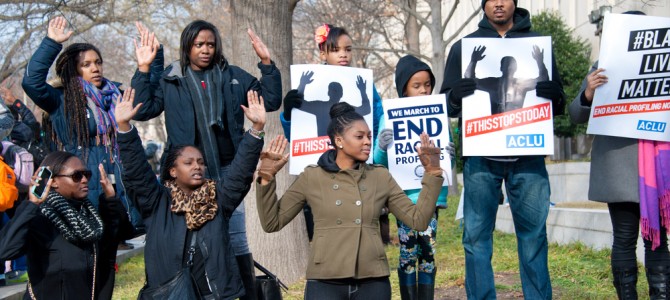
“If anyone wants to see a case study of the puerile politically correct campus culture that pervades modern colleges, they need only look at the incredible overreaction at the University of Missouri.” I wrote that sentence a few weeks ago, without any idea the article it introduced would initiate a firestorm of censorship, death threats, and intimidation.
As managing editor of my high school newspaper, The Centralizer of Central High School in Philadelphia, I’ve always been concerned with the issue of censorship and free speech on campus. As I’ve learned from the past few weeks, the culture of micro-aggressions, safe spaces, and political correctness many of us lament arises not from a vacuum, but from the high school classroom.
We ran my article against the protests at Mizzou, as well as against the broader narrative of the Black Lives Matter protesters, as part of a pro/con series in the print and online editions of our faculty-approved and school-sponsored newspaper.
Death Threats Ensue
The article, headlined “A Case of Overreaction,” ironically enough elicited from students, alumni, and teachers the precise brand of mindless overreaction to which the article itself alluded. Students posted on Twitter that someone ought to “shoot” me, that I must be “dealt with,” and that I will “catch these hands” in the main hallway.
They wrote that I am “a smug (expletive) that thinks his white privilege will keep him from getting popped,” and that I need to be “smoothed the (expletive) out,” two thinly veiled allusions to shooting and otherwise severe violence.
An alumnus gleefully noted that “black students at Central will handle their business” with me, and at least one teacher joined in the criticism by liking a post accusing me of being “bold and privileged.”
Others called for me to be fired from the paper, and some even tried to contact the University of Pennsylvania, which recently accepted me, to jeopardize my future. “Y’all are really messing with this kids future and I’m so here for it,” read a post, written by an alumna and shared by students.
“At least his article is online to haunt him forever,” one student wrote, evidently trying to make a silver lining out of my right to free speech. There was one problem with this student’s proclamation, however — the article didn’t stay. It was censored, in a move student editors initiated and later reinforced by the administration.
Authorities Blame the Victim
As the editors wrote, “If an article comes across as insensitive, and the Central community would rather have it taken down because of this, then an article will be taken down.” Though I do not doubt their good intentions, that sentence must be the worst sentence I’ve ever read by anyone involved in journalism, ever. That the administration reinforced this censorship, even after the editors agreed to republish the article, shows an amazing lack of moral clarity.
Further, in a remarkable failure of school responsibility, the administration did not even contact me about the threats for two days — I had to initiate the conversation regarding a specific plan for my safety. After I submitted a police report, the school even tried to contact the detective assigned to the case, to pressure him. (In a testament to the integrity and good work of the Philadelphia Police Department, he refused to assent to their requests.)
When the details were finally given and I met with the president of the school, Timothy McKenna, he had the audacity to blame the article, saying it might not have evoked such a reaction if we had posted it (my con article, against the protests) online at the same time as the pro article.
It takes an inestimable level of cognitive dissonance on the part of the school president to blame death threats, intimidation, and mob rule on the timing of an article’s publication instead of on the student body he leads.
Administration Backs…The Mob
In an act of retaliation, the paper’s faculty advisor, John McElhenny, promoted someone else to serve alongside me as managing editor and stripped me of the right to access the paper’s accounts. He argued, to my face, that the decision to diminish my authority was an attempt to streamline the editing process, and admitted 20 seconds later, after my questioning, that the paper receiving email requests from media was “part of” his reasoning. What a convenient omission, and what coincidental timing that was.
I, as a student journalist, wrote an article that faculty approved. We published the article, I received threats against my life, and the response of the administration was censorship of my speech, silence on my security, and suppression of my editorial duties.
The mob of people claiming to be “personally victimized” by my article, at the same time I was receiving actual threats and being censored, won at Central. As a writer, as a student journalist, and as an American, it’s an admission I’m incredibly depressed by, but it is reality.
Scream loudly enough and you’ll shut up your ideological opponents. What an incredible inculcation of values my college-preparatory alma mater has facilitated.
Let me amend the introduction to my article: if anyone wants to see a case study of the puerile politically correct campus culture that pervades modern colleges, they need only look at the incredible overreaction at Central High School.









